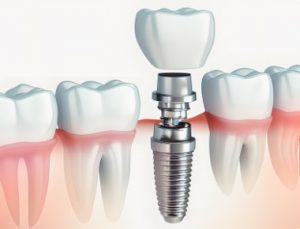How Seniors Can Afford Dental Implants in 2024: Cost Breakdown and Financing Tips
In 2024, dental implants for seniors remain a critical option for restoring dental health, but understanding the costs and available funding options is essential for making an informed decision. Here’s a detailed analysis of dental implant costs for seniors, including pricing breakdowns, expert insights, and funding opportunities.

Understanding the Cost of Dental Implants for Seniors
Dental implants are a reliable solution for seniors seeking to replace missing teeth, but they come with significant costs. These costs vary depending on several factors, such as the number of implants needed, the complexity of the procedure, and the type of dental implant specialists involved. Below, we will explore the key aspects that influence the cost of dental implants for seniors in 2024.
Factors Affecting the Cost of Dental Implants
- Type of Implant: The type of implant used (e.g., standard vs. mini implants) greatly influences the overall cost.
- Full Mouth vs. Partial Implants: Full mouth dental implants are more expensive than partial implants due to the increased number of implants and the complexity of the procedure.
- Geographic Location: Costs can vary significantly based on the location of the dental clinic. Urban areas typically have higher prices than rural areas.
- Senior Discounts: Some dental clinics offer special pricing or discounts for seniors.
- Insurance and Funding Options: Availability of dental insurance and external funding for dental implants can reduce out-of-pocket expenses.
Breakdown of Average Costs for Dental Implants in 2024
| Service | Description | Average Cost (USD) |
|---|---|---|
| Single Implant (Standard) | Includes implant, abutment, and crown | $3,000 – $4,500 |
| Single Implant (Mini) | Smaller implant with limited application | $2,000 – $3,500 |
| Full Mouth Implants (Upper/Lower) | Complete set for upper or lower jaw | $20,000 – $30,000 |
| Full Mouth Implants (Both Jaws) | Both upper and lower jaw | $40,000 – $60,000 |
| Consultation Fees | Initial assessment and treatment planning | $100 – $250 |
| 3D Imaging | Advanced imaging for precise placement | $300 – $600 |
| Bone Grafting | Necessary for patients with insufficient bone density | $1,000 – $3,000 |
| Temporary Dentures | Interim solution during the healing process | $500 – $1,500 |
| Anesthesia Fees | Local or general anesthesia | $500 – $1,500 |
| Follow-up Visits | Post-surgery check-ups and adjustments | $100 – $300 per visit |
Funding Options for Senior Dental Implants
For seniors on a fixed income, the cost of dental implants can be daunting. However, several funding options can help alleviate these costs:
- Medicare and Medicaid: Although Medicare does not typically cover dental implants, some Medicaid programs may offer assistance depending on the state.
- Dental Insurance Plans: Some dental insurance policies include partial coverage for implants, particularly those designed for seniors.
- Health Savings Accounts (HSA) and Flexible Spending Accounts (FSA): These tax-advantaged accounts can be used to cover dental implant expenses.
- Financing Plans: Many dental clinics offer payment plans that allow seniors to spread the cost over several months or years.
- Grants and Non-Profits: Organizations like Dental Lifeline Network provide grants and financial assistance for seniors in need of dental care.
FAQs about Dental Implants for Seniors
Q: How long do dental implants last?
A: With proper care, dental implants can last 20 years or more, making them a long-term investment in dental health.
Q: Are there any risks associated with dental implants?
A: Like any surgical procedure, dental implants carry risks, including infection, nerve damage, and implant failure. However, these risks are minimal with a qualified dental implant specialist.
Q: Can all seniors get dental implants?
A: Most seniors are candidates for dental implants, but those with certain medical conditions, such as uncontrolled diabetes or severe osteoporosis, may need special consideration.
Q: What are the alternatives to dental implants?
A: Alternatives include dentures, bridges, and partial dentures, each with its own pros and cons.
Pros and Cons of Dental Implants for Seniors
Pros:
- Longevity: Implants can last for decades with proper care.
- Stability: They offer a more stable and natural-feeling solution compared to dentures.
- Bone Health: Implants help maintain jawbone density, preventing bone loss over time.
Cons:
- Cost: Implants are more expensive than other dental restoration options.
- Surgical Risks: Involves surgery, which may not be suitable for all seniors.
- Time-Consuming: The implant process can take several months from start to finish.
Final Thoughts
Dental implants offer seniors a durable and aesthetically pleasing solution to missing teeth, but the costs can be significant. By exploring various funding options and understanding the factors that influence pricing, seniors can make informed decisions about their dental care in 2024.
References
- https://www.dentistryiq.com/dental/article/14036951/dental-implant-costs-what-you-should-know
- https://www.oralb.com/en-us/oral-health/life-stages/adults-55/seniors-dental-implants
- https://www.dentalplans.com/blog/dental-implants/
This article provides an extensive overview of the costs associated with dental implants for seniors in 2024, offering both a detailed breakdown and practical advice on funding and decision-making.







Recent Comments